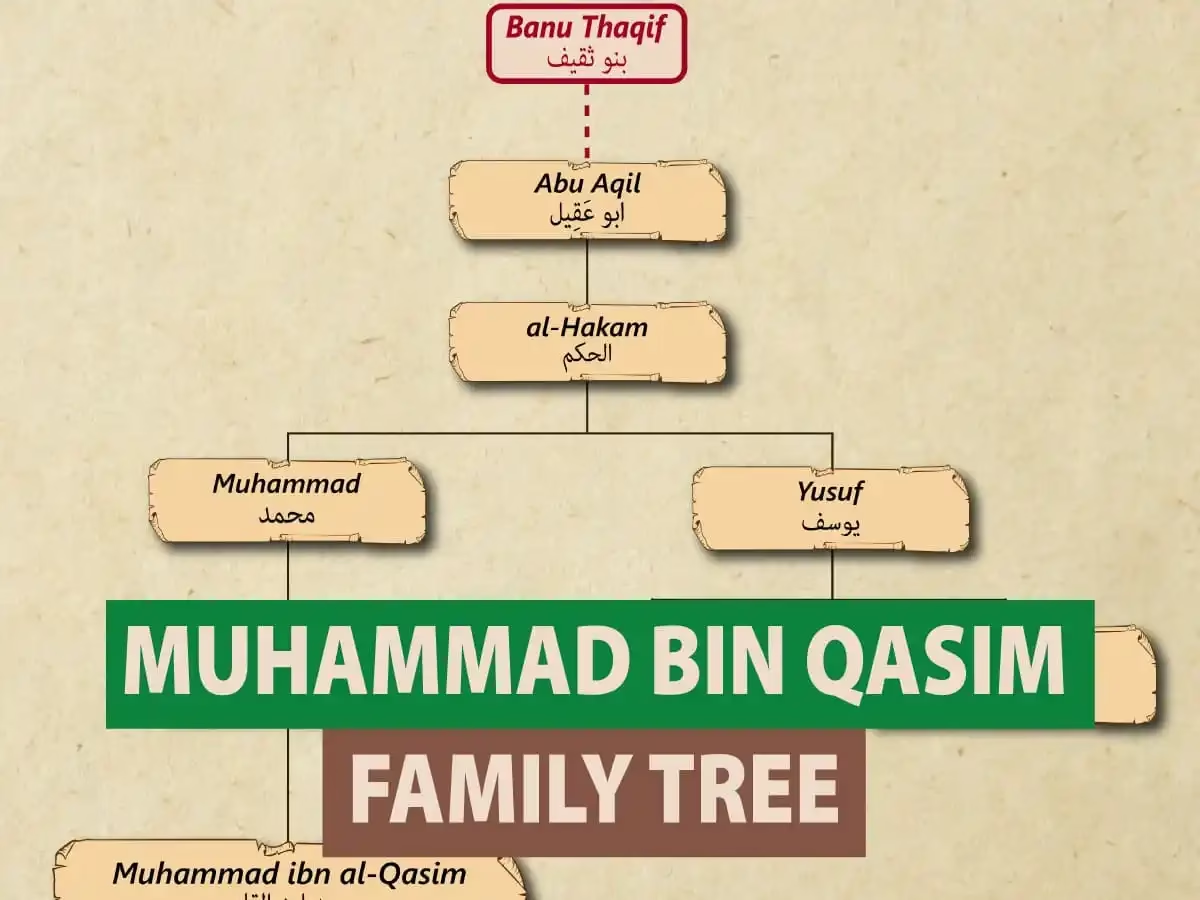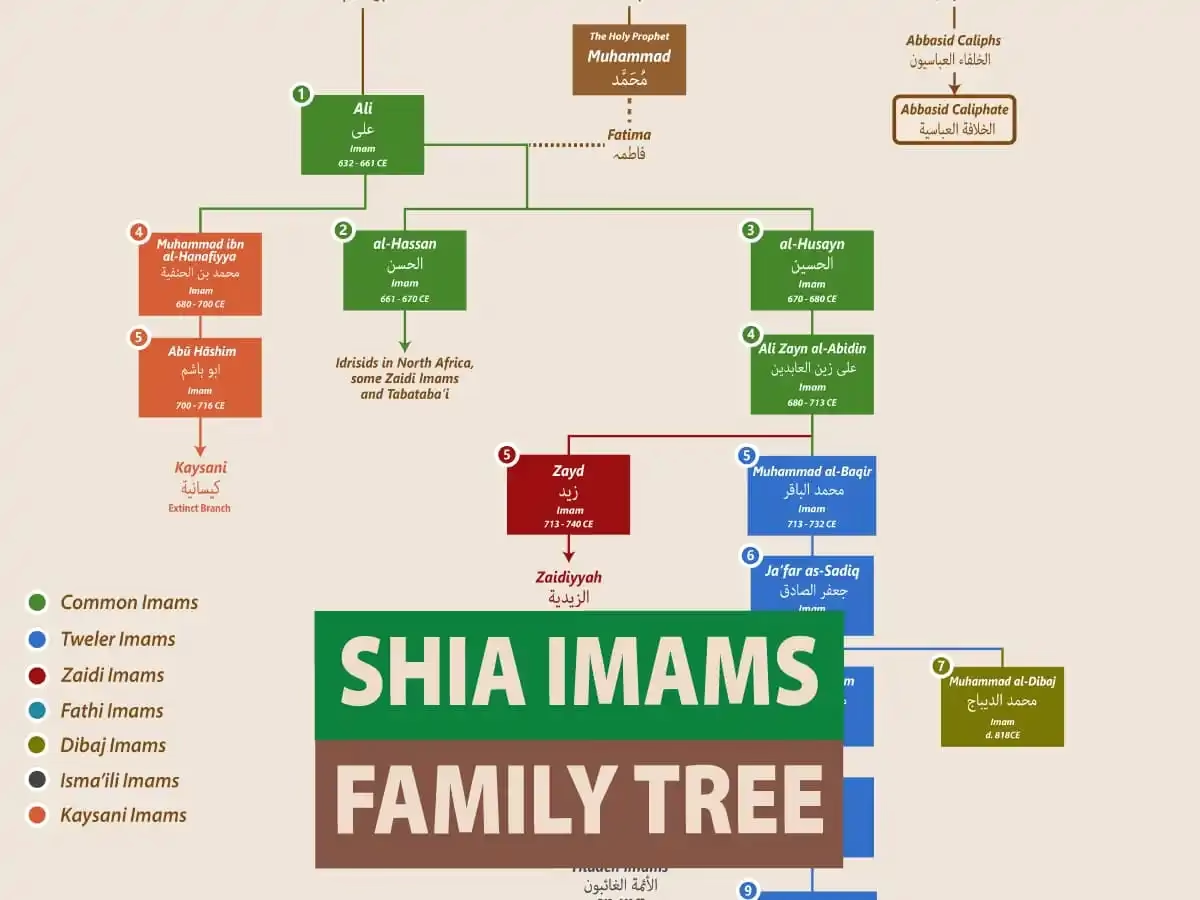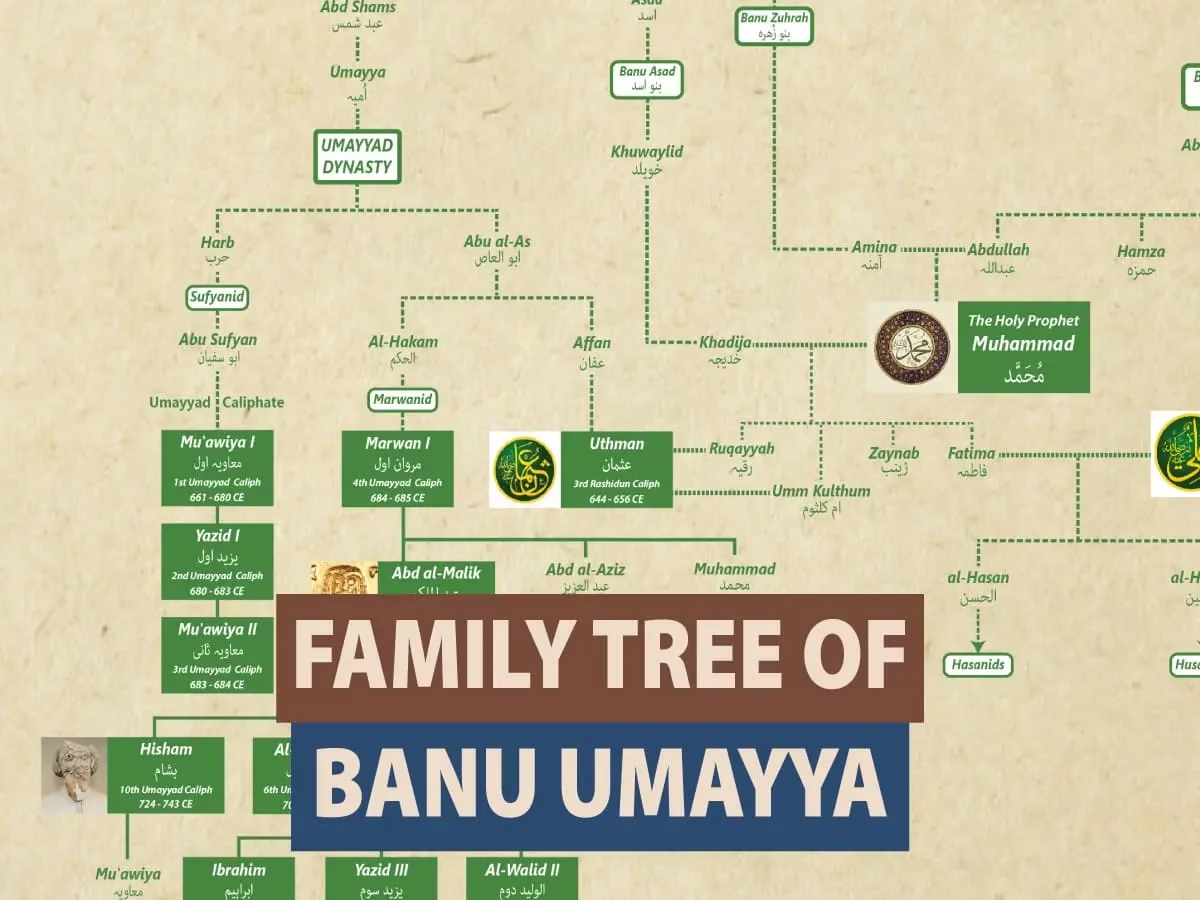Ayatollah Ali Hosseini Khamenei, the Supreme Leader of the Islamic Republic of Iran, stands as one of the most powerful figures in the contemporary Muslim world. His influence spans theology, politics, military strategy, and international diplomacy. However, to understand the full scope of his persona and authority, one must look beyond modern politics and delve into his ancestral lineage, which connects him to the family of Prophet Muhammad (PBUH).
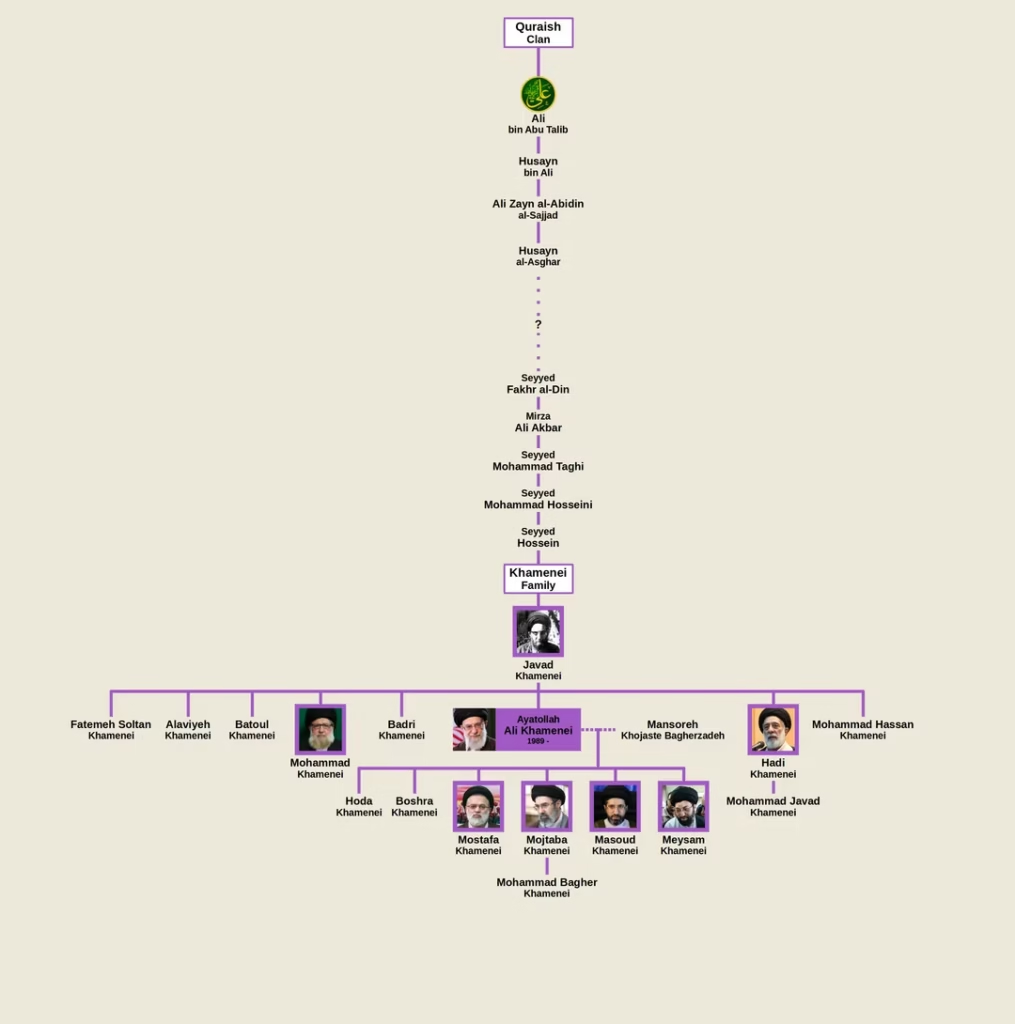
Ancestral Lineage: From Quraysh to Khamenei
The family tree of Ayatollah Ali Khamenei begins with one of the most important tribes in Islamic history — the Quraysh, to which the Prophet Muhammad and his cousin Imam Ali ibn Abi Talib belonged.
Ayatollah Khamenei’s family claims direct descent through the line of:
- Ali ibn Abi Talib – the first Shia Imam and fourth Caliph
- Husayn ibn Ali – the martyred grandson of Prophet Muhammad at Karbala
- Ali Zayn al-Abidin (Imam Sajjad) – the fourth Shia Imam
- Husayn al-Asghar
See Also: Shia Imams Family Tree
From there, some generations remain unnamed but continue down through the Sayyeds (descendants of the Prophet). Named ancestors include:
- Seyyed Fakhr al-Din
- Mirza Ali Akbar
- Seyyed Mohammad Taghi
- Seyyed Mohammad Hosseini
- Seyyed Hossein
This noble lineage gives the Khamenei family deep religious credibility, especially in Shi’a Islam where descent from the Prophet’s family (Ahl al-Bayt) is considered spiritually significant and a source of reverence.
Javad Khamenei – The Patriarch of the Modern Line
Ayatollah Khamenei’s father, Seyyed Javad Khamenei, was a prominent religious scholar born in Tabriz, Iran. He moved to Mashhad, one of the holiest cities in Iran, and established himself as a respected cleric in the city’s religious circles. His influence and piety laid the groundwork for his children to enter religious and political life.
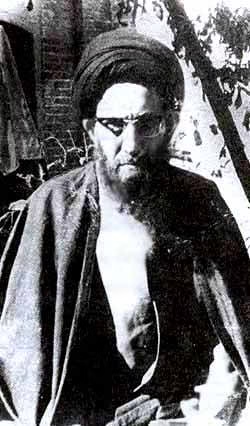
Children of Javad Khamenei
Javad Khamenei had several children, including both sons and daughters. Among them:
- Fatemeh Soltan Khamenei
- Alaviyeh Khamenei
- Batoul Khamenei
- Badri Khamenei
- Mohammad Khamenei – former parliamentarian and scholar
- Ayatollah Ali Khamenei – the most prominent of all
- Hadi Khamenei – reformist cleric and politician
- Mohammad Hassan Khamenei
Each of the siblings followed different paths, with some, like Badri Khamenei, becoming known for their political dissent, while others remained more aligned with the Islamic Republic’s values.
Ayatollah Ali Khamenei – Supreme Leader of Iran
Born in 1939 in Mashhad, Ali Khamenei began religious education at a young age, studying under prominent scholars in Mashhad, Najaf, and Qom. He quickly became known for his eloquence, knowledge, and anti-imperialist views.
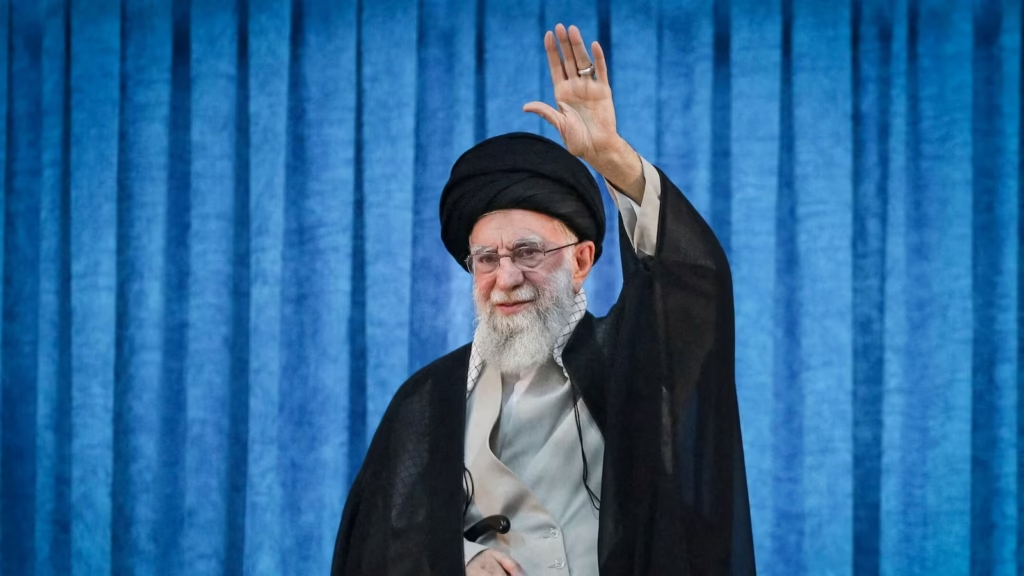
Following the 1979 Islamic Revolution, he rose in influence:
- Served as President of Iran (1981–1989)
- Became Supreme Leader of Iran in 1989 after the death of Ayatollah Khomeini
As Supreme Leader, he holds the highest authority in Iran, overseeing the military (including the IRGC), judiciary, foreign policy, and religious institutions.
Khamenei’s Immediate Family
Ayatollah Khamenei married Mansoureh Khojaste Bagherzadeh, who also comes from a religious and scholarly family. The couple has several children, most of whom have avoided the public spotlight, though a few are well-known.
Children of Ali Khamenei
- Hoda Khamenei (daughter)
- Boshra Khamenei (daughter)
- Mostafa Khamenei – Cleric and scholar
- Mojtaba Khamenei – Cleric, considered a potential successor due to political influence
- Masoud Khamenei – Low public profile
- Meysam Khamenei – Also relatively low profile
While Ayatollah Khamenei has discouraged nepotism, his son Mojtaba is widely considered one of the most influential figures in the background of Iranian politics, especially within conservative circles.
Legacy and Political Importance
The Khamenei family has become one of the most influential clerical dynasties in modern Iran. While they do not operate as a monarchy, their impact on Iranian politics and society is profound. From spiritual leadership to revolutionary influence, the family embodies the unique fusion of religious heritage and modern political power.
Critics and supporters alike recognize that Ayatollah Khamenei’s rule is not just based on his clerical credentials but is deeply rooted in a long and noble heritage that stretches back to the early days of Islam.
